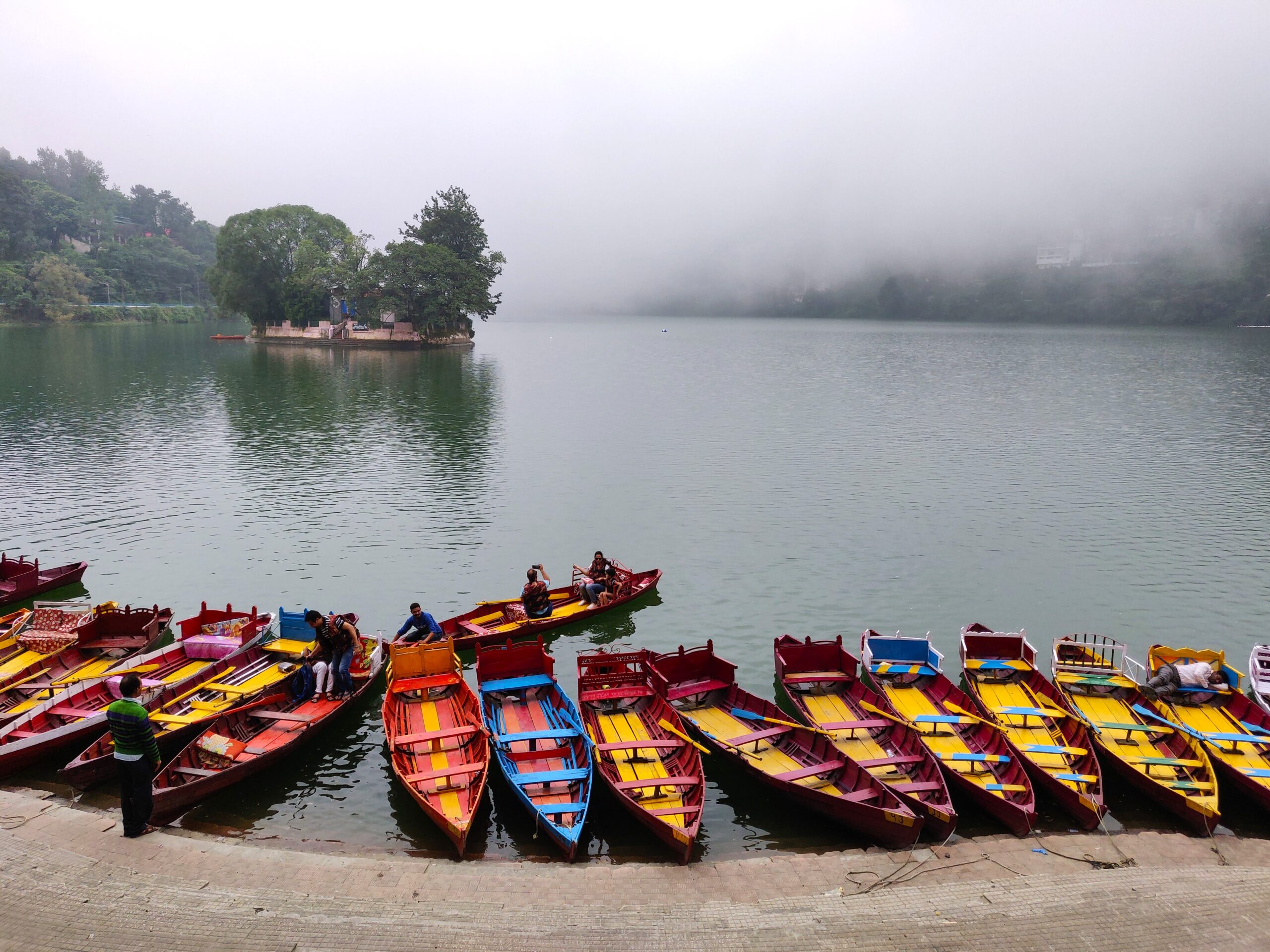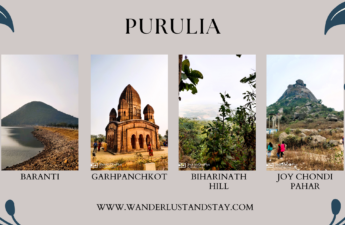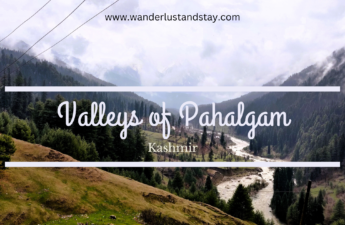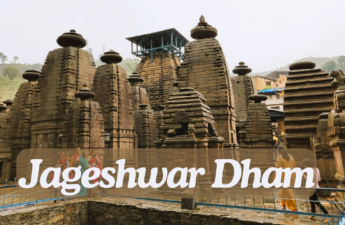Remember those days when schools declared ‘Rainy Day’ for a week? We missed going to school, throwing paper balls at each other during classes, eating lunch together..Mom used to make ‘khichudi’ and ‘papad’ for lunch at home. We floated paper boats on puddles or streams of flowing water. Monsoons are nostalgic. Every year they bring memories from childhood. As I reminisced all this, I realised I need a ‘Rainy Day vacation’ this year, and what better place to celebrate the monsoon than in Uttarakhand! We decided to spend a monsoon weekend by the famous lakes of Kumaon. My heart gleamed with joy as I imagined how fascinating the trip would be. The sight of the grey monsoon clouds enveloping the mountain tops, the way the lakes and ponds would appear when a million droplets fell on the surface, the petrichor emanating from the dried soil, the sound of the rain echoing from a distant land – I couldn’t wait for it!
So, here is how I spent my exhilarating rainy vacation by the lakes of Uttarakhand’s Kumaon region: Bhimtal, Sattal, and Naukuchital.
The Plan
We decided to stay at Bhimtal and hired a cab to visit the other places. All the three places can be covered within a day if you leave a little early from the hotel for sightseeing.
We decided to avoid boating in all lakes to save time.
How We Traveled
To reach Bhimtal, we took a train from Delhi to Kathgodam and hired a cab till Bhimtal.
From the hotel, we hired a cab for sightseeing and started with Naukuchia Tal.
Naukuchiatal
Naukuchia Tal, also known as the ‘lake of nine corners’ is located at a distance of 7 km from Bhimtal.
The view was breathtaking, just as I had imagined it to be. The green lake was surrounded with green hills, and monsoon-laden clouds sailed through one hilltop to another.
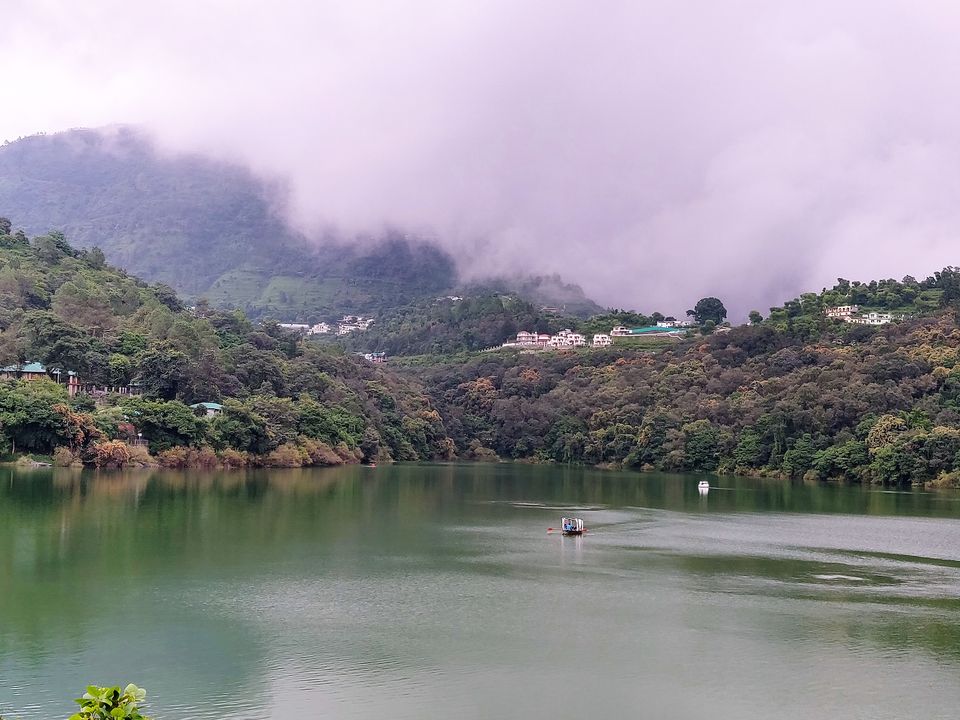
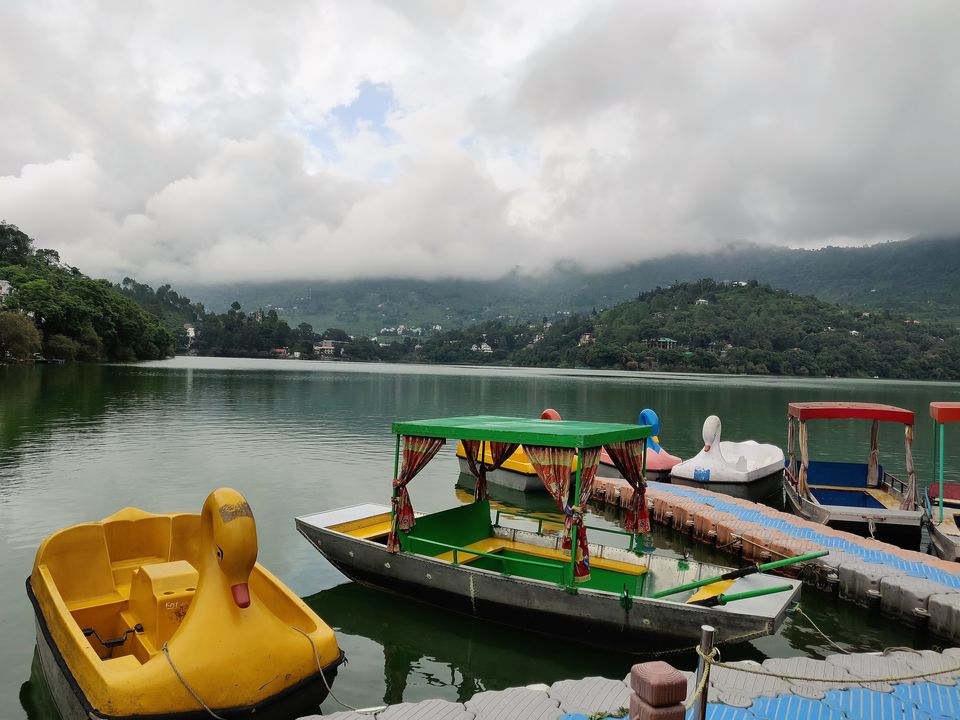
Flock of ducks swam across the lake-side munching the morsel of food the tourists gave them.
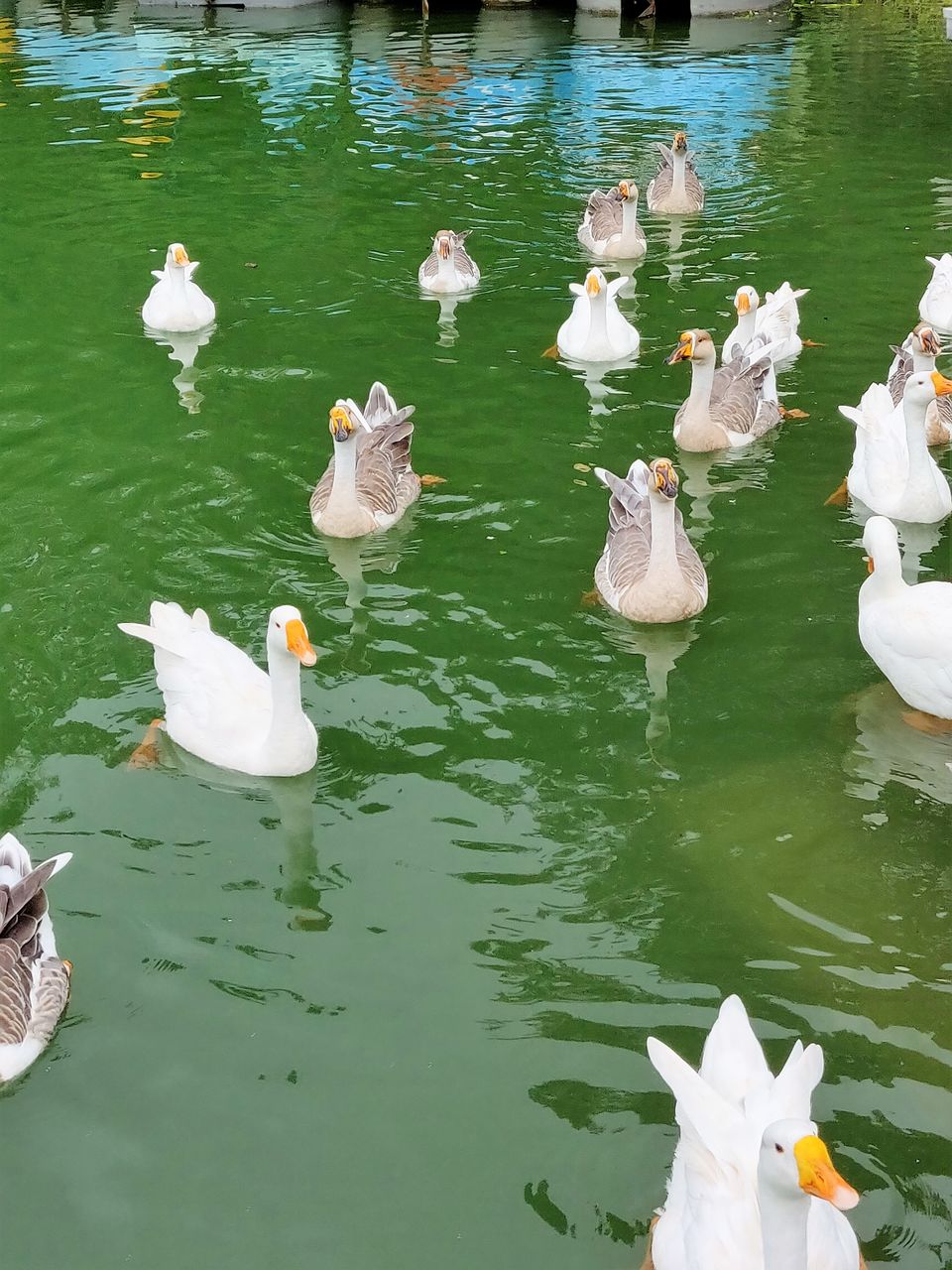
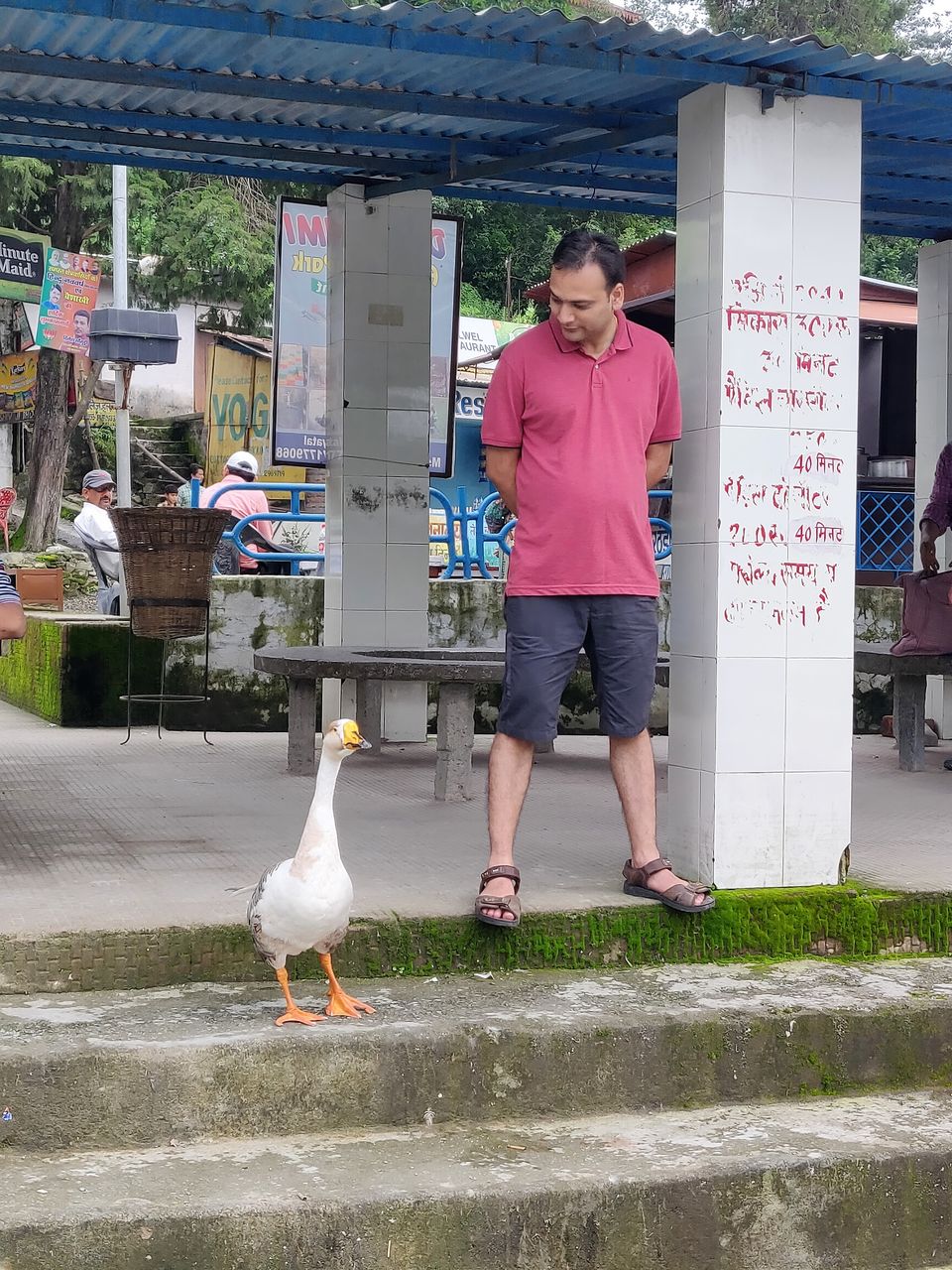
The colourful boats or ‘shikaras’ parked at the jetty bestowed a colourful contrast to the monsoon background.
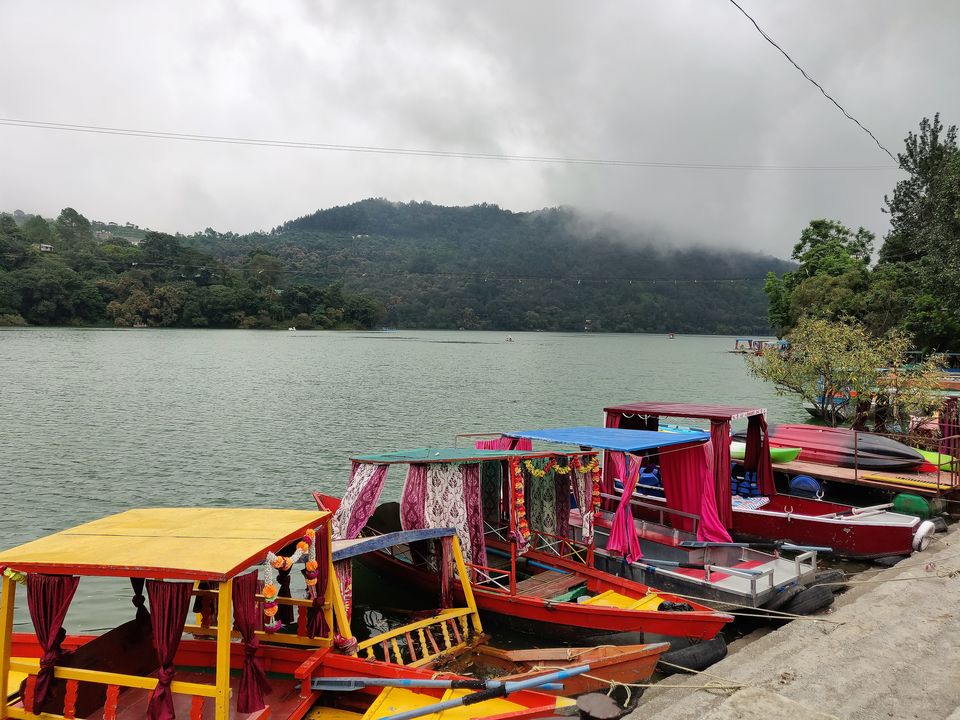
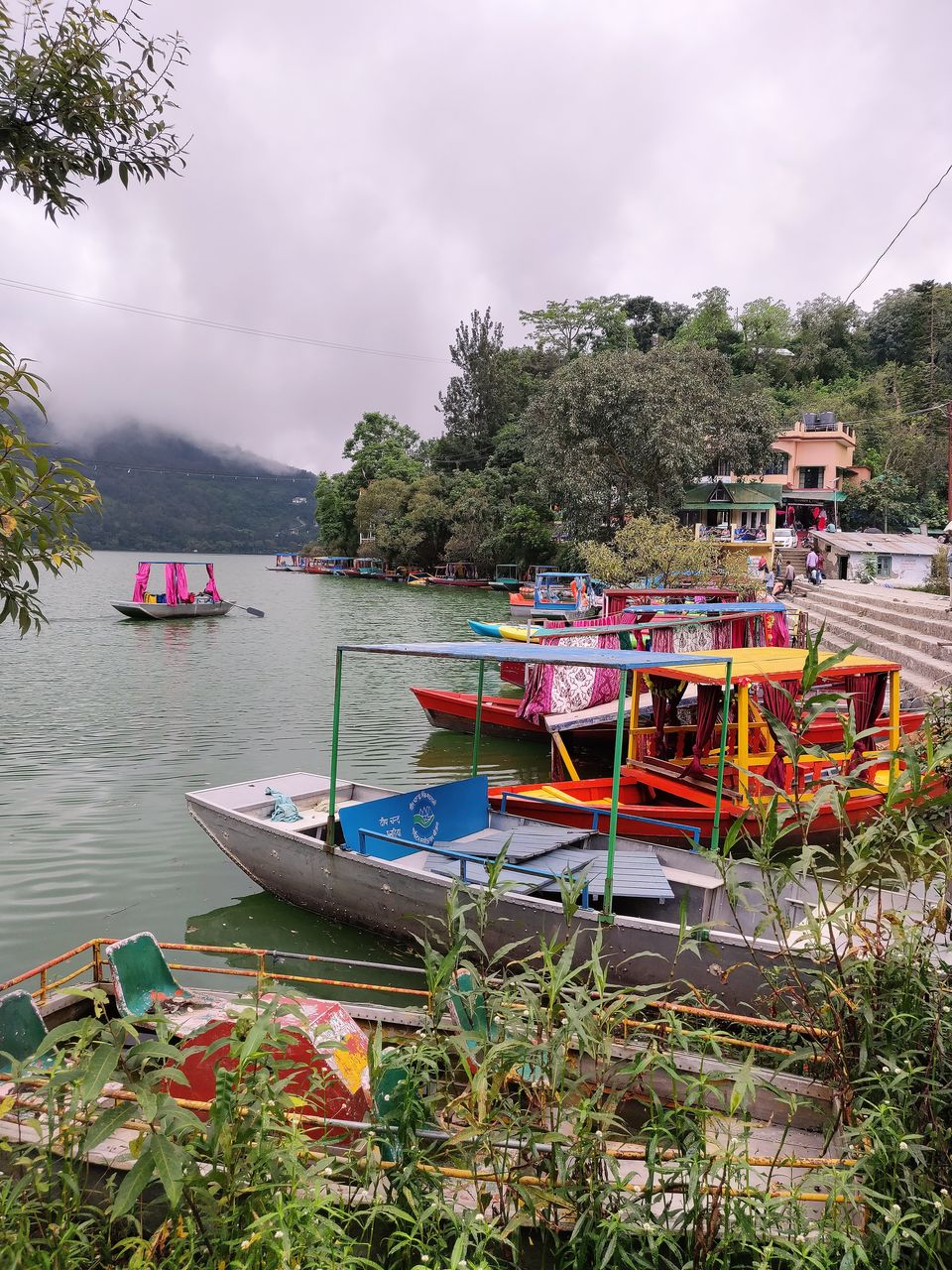
Read more about Naukuchia tal here.
Kamal Tal
Adjoining the Naukuchiatal lake, is another small lake of lotuses called the ‘Kamal tal’. Variety of lotuses bloom in this lake in the appropriate season.
We could spot some kids fishing amidst the lotus plants in the lake.


Next, we headed to Bhimtal, and then we planned to go Sattal.
On our way to Bhimtal, we crossed a beautiful temple named ‘Bhakti Dham Ashram’. A huge statue of Lord Hanuman stood overlooking the narrow road.


Bhimtal
Bhimtal is named after ‘Bhima’, one of the five ‘Pandavas’ from the infamous Indian epic, ‘Mahabharata’.
The Bhimtal lake was clearly visible from our hotel room and what caught my attention was a small island like structure in the middle of the lake. I had to see it.
Read my next blog to know more about our comfortable hotel at Bhimtal.
The clouds at the Bhimtal lake had descended so low that it shrouded the hills surrounding the lake. The most prominent hill on the bank of the lake is called ‘Hidimba Parvat’, named after the demon king ‘Hidimba‘ from ‘Mahabharata’.


An ancient temple called ‘Bhimeshwara Mahadev Temple’ dedicated to Lord Shiva is located on the bank of the Bhimtal lake. This temple is believed to be built when Bhima visited the place during the banishment (vanvas) period of Pandavas.

The Victoria Dam is located adjoining the temple at one end of the Bhimtal lake. The clean walkway and seating spots on the dam enables the people to have a stroll over the lake.


The lakeside gave mesmerizing views with the clouds, boats, and green water.



We booked our ticket and hopped on a boat to have a fun boat ride and reach the aquarium located on the small island-like structure.
The captain of our boat (I don’t remember his name though) explained the history, culture and heritage of Bhimal, and also spoke of the Vankahndi Ashram atop the Hidimba Parvat as he rowed the boat across the lakeside.


Bhimtal Aquarium
Honestly, the aquarium was disappointing. Most of the fish tanks were mossy and empty. Luckily, we could see few of the surviving fishes through the hazy glasses.


Next, we headed to Sat tal.
Sat Tal
Sat Tal means seven lakes. It is an interconnected group of seven freshwater lakes near the Bhimtal region.
Surrounded by hills covered by oak and pine trees, the lakes of Sat Tal is as beautiful as your imagination can go.

The seven lakes comprising Sat Tal are: Panna Tal or Garud Tal, Nal-Damyanti Tal, Purna Tal, Sita Tal, Ram Tal, Laxman Tal, Sukha Tal or Khurdariya Tal.
Abundant in flora and fauna, the Sat Tal houses a number of migratory birds and butterflies, variety of fishes and mammals, etc.
There are a number of eateries and a Christian Ashram located on the banks of Sattal lakes.
Read more about Sat Tal lakes here.
Having ample time to spare, we decided to have a tour of the Ram Tal lake that is available to tourists for boating.



Locals say, a number of famous films starring prominent actors like Rekha-ji, Preity Zinta, Hrithik Roshan have been shot on the banks of Ram Tal.
Having witnessed the beginning of sunset, we started our return journey to the hotel.

Not much further away from the Ram Tal, we stopped at the quaint looking Sat Tal post office and the Old Church.


Our last destination for the day was Nal Damyanti Taal.
Nal Damyanti Taal
It is a small natural lake located about 2 km from Bhimtal, and is considered a sacred place for the locals.


Read more about Nal Damyanti tal here.
With the monsoon weather by our side and no rain, we completed the trip of the Kumaon lakes and reached our hotel to rest our aching legs.
Each lake is unique in its beauty and has an exclusive story attached to it. While some lakes are believed to be haunted or sacred, some are captured in the reels of Bollywood!
We checked out the next day and boarded our train to Delhi from Kathgodam.
What we missed to cover:
• Butterfly museum at Sat Tal
• Karkotaka Temple at Bhimtal
This blog is published on Tripoto
